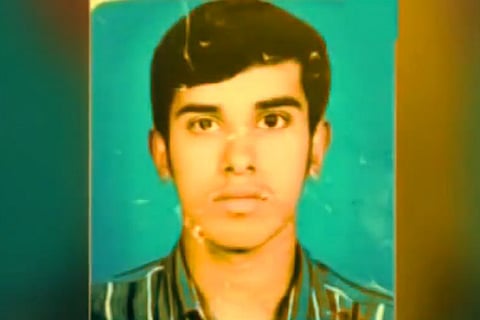

The Ernakulam judicial first class magistrate court has said there is sufficient grounds to begin a trial against the Lakeshore Hospital in Kochi as well as eight doctors over violation of the Transplantation of Human Organs Act (THOA), 1994. In 2009, the hospital harvested the kidneys and liver of an 18-year-old accident victim, VJ Abin. The liver was reportedly transplanted to a Malaysian national. However, two experts have told the court that procedure was not followed to establish that Abin was brain dead and a crucial test to determine the same was not conducted.
Abin met with a two wheeler accident and was rushed to Mar Baselios hospital Kothamangalam on November, 29, 2009 and later to Lakeshore on November 30, 2009. His family had alleged medical negligence by both hospitals. However, the complaint was filed by Dr S Ganapathy, from Kollam after he came to know the details about the organ transplantation through a newspaper report in 2019. According to Dr Ganapathy’s complaint, the Apnea test, which is mandatory to confirm brain death was not conducted in the case of Abin.
Dr P Sanjay, Assistant Professor, Department of Forensic Medicine, Government Medical College, Manjeri who conducted the autopsy pointed to an irregularity by the hospital due to which there was a collection of blood in the cranial cavity due to hemorrhage. This blood was not drained surgically by the doctors at the hospital, though Abin was immediately taken to the hospital after the accident. This was considered a major lapse from the part of two hospitals where he was treated. Dr Sanjay, also noted that at Lakeshore hospital, Abin was not subjected to neurosurgery. “Though the patient started respiring himself, the authorities downgraded the ventilator settings,”Dr Sanjay told the court. He concluded that Abin did not have a significant brain injury and that evacuation of the collected blood could have saved his life.
Both Dr Sanjay and Dr Thomas Iype, Head of Neurology department, Medical College Hospital,Thiruvananthapuram, who had been asked by the court to give an expert opinion, said that declaration of brain death was not done as per the procedure and it was illegal. It has also been pointed out to the court that even before the declaration of death, the transplantation team was given access to the patient and his liver was transplanted to a Malaysian National, contrary to the provisions.
Dr Philip Augustine, the founder of Lakeshore hospital and the then head of the hospital, had signed the brain stem death certificate of the patient. But the court observed that there is no evidence to prove that Philip Augustine had examined Abin. It was also noted that some other doctors who signed the certificate also had no authorisation.
"I find that there is a prima facie case and sufficient grounds for proceeding in respect of offences u/s. 18, 20 and 21 of the Transplantation of Human Organs Act, 1994 (pre-amended), against all accused", read Magistrate Eldos Mathew’s order on May 29.
Initially, Abin’s family did not have any doubts about the hospital. “They told us the surgery will require Rs 4 lakh, and even if it was done he will likely not survive. Later they said since there are variations in the pressure, surgery cannot be done. Then they asked whether his organs can be donated as there are some patients in hospital waiting for transplant. Since they said he wouldn't survive, I signed those papers. Now I am more sad than when I was at the time of his death,” Omana, Abin’s mother, told the media.
Dr Ganapathy who was doing research on illegal transplantation said that he first noticed the case through a newspaper report. “I saw a report saying there is nothing illegal in the case. I enquired about the report and one of the doctors who was mentioned in the report said she did not attend any meetings regarding it. Then I realized there was something. He was not treated at Mar Baselios hospital though they had a neurosurgeon, they referred him to Lakeshore. It was an adjustment as the doctor had earlier worked in Lakeshore,” he told the media.
The court has issued summons to Dr Philip Augustine, Dr S Mahesh, Dr Sai Sudarsan, Dr Thomas Thachil, Dr Murali Krishna Menon, Dr Sujith Vasudevan and Dr Sajeev S.
How is the Apnea test done?
The test is done to find out whether the respiratory control system reflexes in the brainstem are absent when intense physiological stimulation to breathe takes place. Though there are various methods to do the test, a common method of apnea testing is by disconnecting mechanical ventilation from the patient, and a catheter or cannula is inserted into the endotracheal tube, down to the level of the carina, through which oxygen is delivered. This is to calculate the arterial blood gas levels.